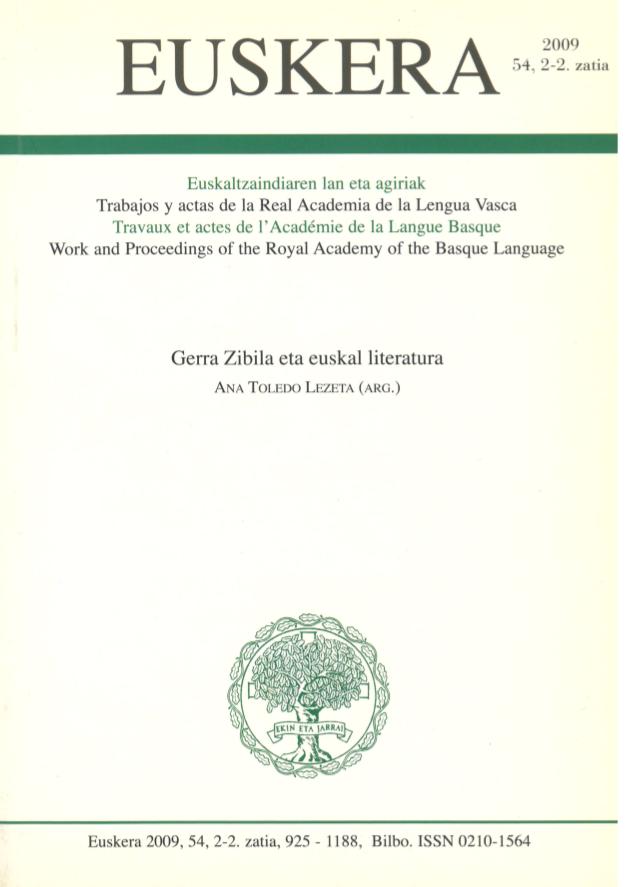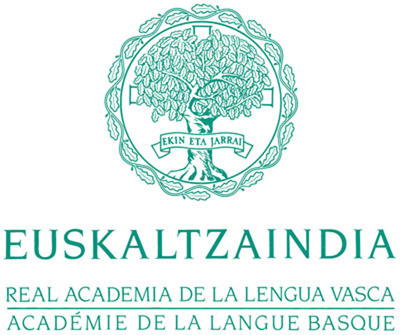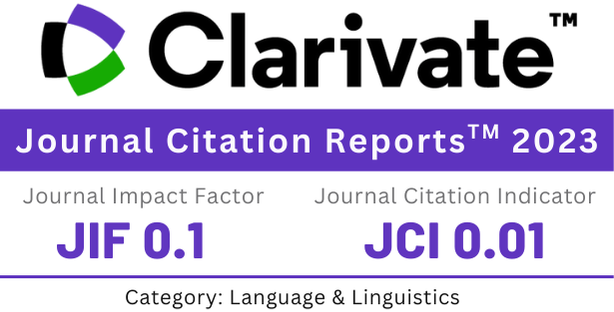Isiltasunaren gerraostetik gerrari buruzko autobiografiara
DOI:
https://doi.org/10.59866/eia.v2i54.229Keywords:
silence, acusation, murder, true story, testimony, autobiographyAbstract
The repercussion that the Civil War (1936-1939) obtained in the narrative production during the quarter of a century following its end is analyzed. After a brief analysis of “lo- retxo” (1937) by Mendi-lauta (the pseudonym of Antonio Arruti), which was published during the war, the disappearance of all Basque literary expression in the immediate post-war period, until its comeback at the hands of exiled writers is corroborated. The narrative texts that place the facts described at any given moment of the Civil War or related events caused by same are analyzed: Bizia garratza da (Buenos aires, 1950) by Jon Andoni Irazusta; Laztantxu eta Betargi (Bayonne, 1957) and “Gizerailtza” (Caracas, 1961) by Martin Ugalde. Finally, Sebastián Salaverria’s autobiographical story Neronek tirako nizkin (Donostia, 1964) calls up memories of his experiences in the war: by now a quarter of as century having elapsed since the first narrative making its appearance in the peninsular Basque Country that addresses the events of the Civil War.








